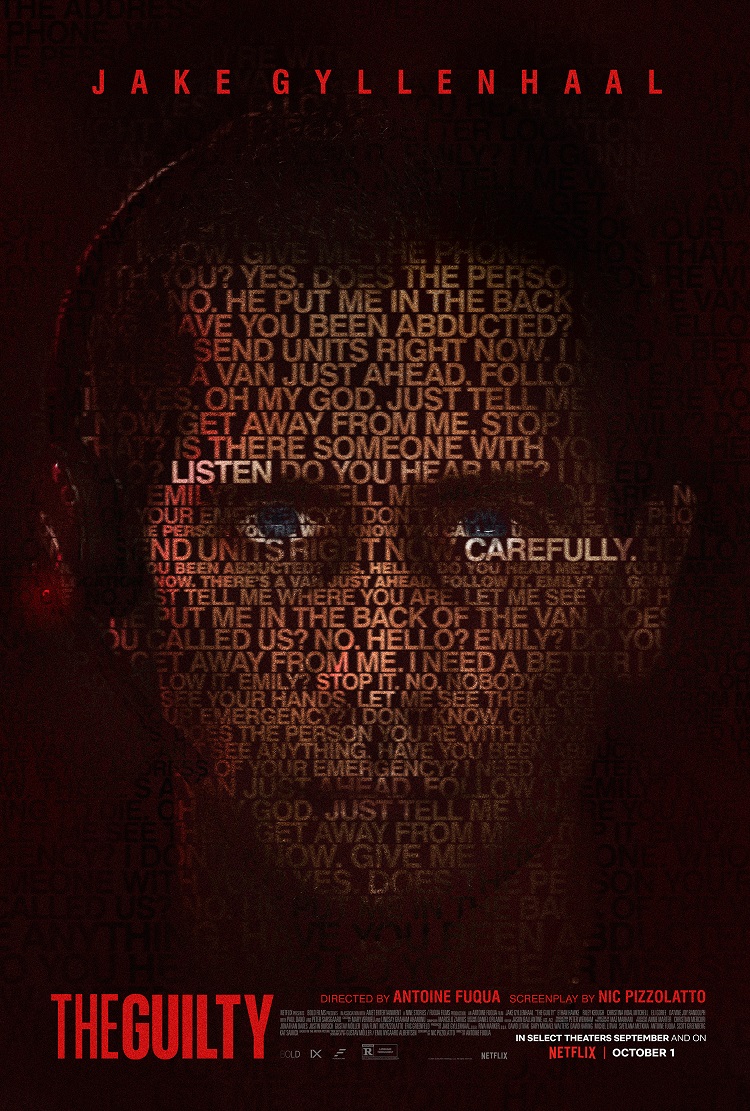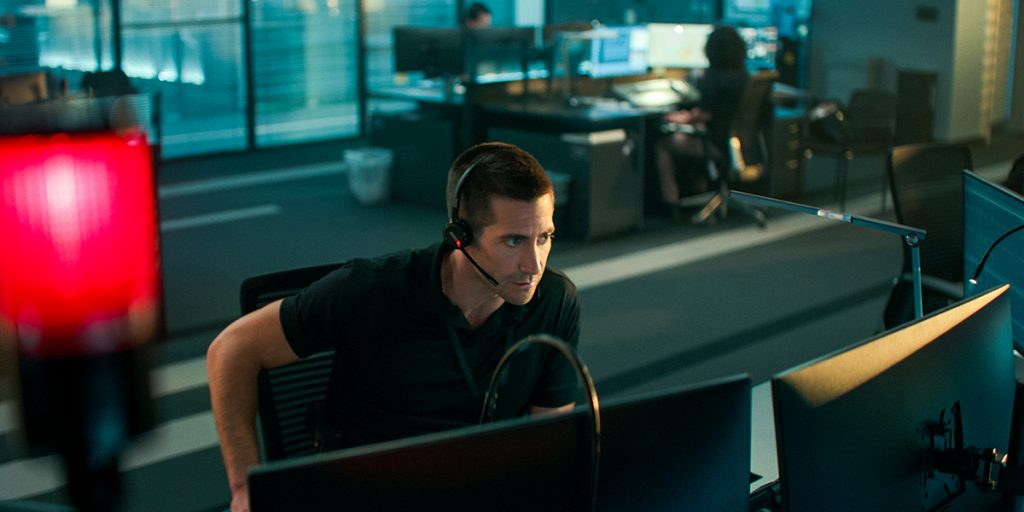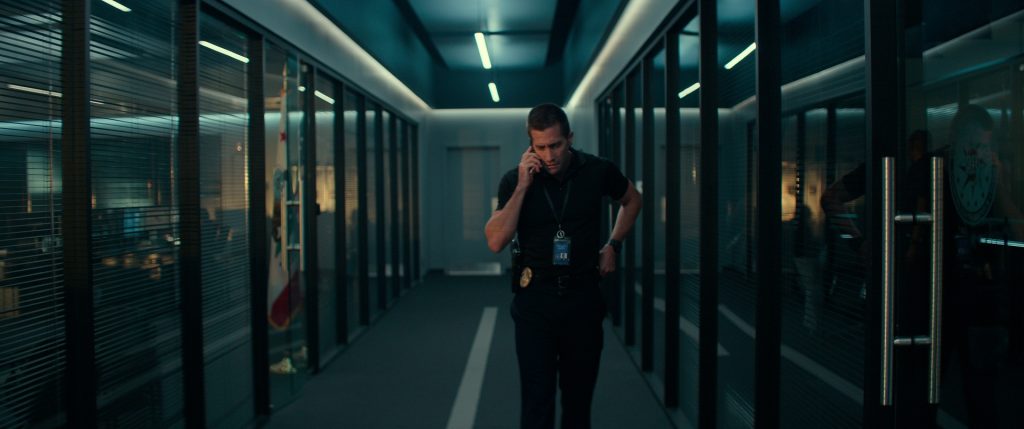
People call 911 when there is an emergency happening and they are in desperate need of assistance. As has been increasingly shown in a public forum in recent years, not everyone engages the same way with the police or regards them as a protective force for good. But when someone calls for help, they expect to receive some degree of support and comfort from the person answering the phone. The Guilty shows the danger of an overeager operator too intent on being a hero to see the perils of going off-script and taking the law into his own hands.
Joe Baylor (Jake Gyllenhaal) has been pulled from active duty as a police officer and relegated to a desk job where he fields incoming 911 calls. All too aware of his upcoming disciplinary hearing, Joe is already on edge and has little patience for those who call with what he deems to be not worth his time. When he receives a call from a woman (Riley Keough), who is pretending to speak to her child so the man who has taken her will not know who she has really called, Joe switches into overdrive, intent on coaching her through an escape at whatever cost.

Joe reveals who he is from the opening moments of this film, which remains at the call center for the entirety of its runtime. He is not just someone stuck in a job he doesn’t want, counting the hours and days until he might be free once again to patrol the streets. He is the kind of man who believes he knows better in every case, which is a tremendous detriment to his actual ability to help people. He mutes his line to laugh at a man who has been mugged by a prostitute, and outwardly accuses multiple callers of being responsible for their own situations due to drugs or alcohol.
This is a remake of the Danish film of the same name from director Gustav Möller that made the Oscar shortlist for Best Foreign Language Film. Plot-wise, there isn’t much difference in the structure of the two films. Yet the story applies specifically to the United States in an intriguing way highlighted in an introduction by director Antoine Fuqua, whose 2001 film Training Day spoke volumes about the dangers of unchecked powers of rogue police officers (and is showing at TIFF this year for its twentieth anniversary). This project adapts the Danish premise to an American police force that has, time and time again, shown a tendency to shoot first and deprive those who would surely have benefited from the chance to ask questions the opportunity to remain alive to do so.

Joe isn’t meant to indict the entire institution of police. Instead, he shows how possible it is for those whose conduct has been flagged as potentially problematic to be reassigned to other roles that should prevent them from doing the same damage to still have just as much access and opportunity. While Joe does reach one colleague who clearly shares the same sentiments, prejudices, and willingness to cross lines as quickly as they appear, the rest of the staff at the call center all seem devoted to their work and to staying within the lanes that have been designated for them.
As a commentary on how those who abuse what they have been given are often given countless additional opportunities to corrupt, The Guilty is extremely interesting. As a gripping, edge-of-your-seat thriller, it mirrors its Danish counterpart’s ability to create suspense without leaving its one location, channeling the success of a format like radio that requires imagination. What most ties it together is an electric performance from Gyllenhaal, tapping into a dark side he has conveyed before in films like Nightcrawler and Prisoners to expose the flaws of overconfidence and access in the wrong hands.
Grade: B+
The Guilty is screening at the Toronto International Film Festival in the Special Presentations section and will be released on Netflix on Friday, October 1st.

